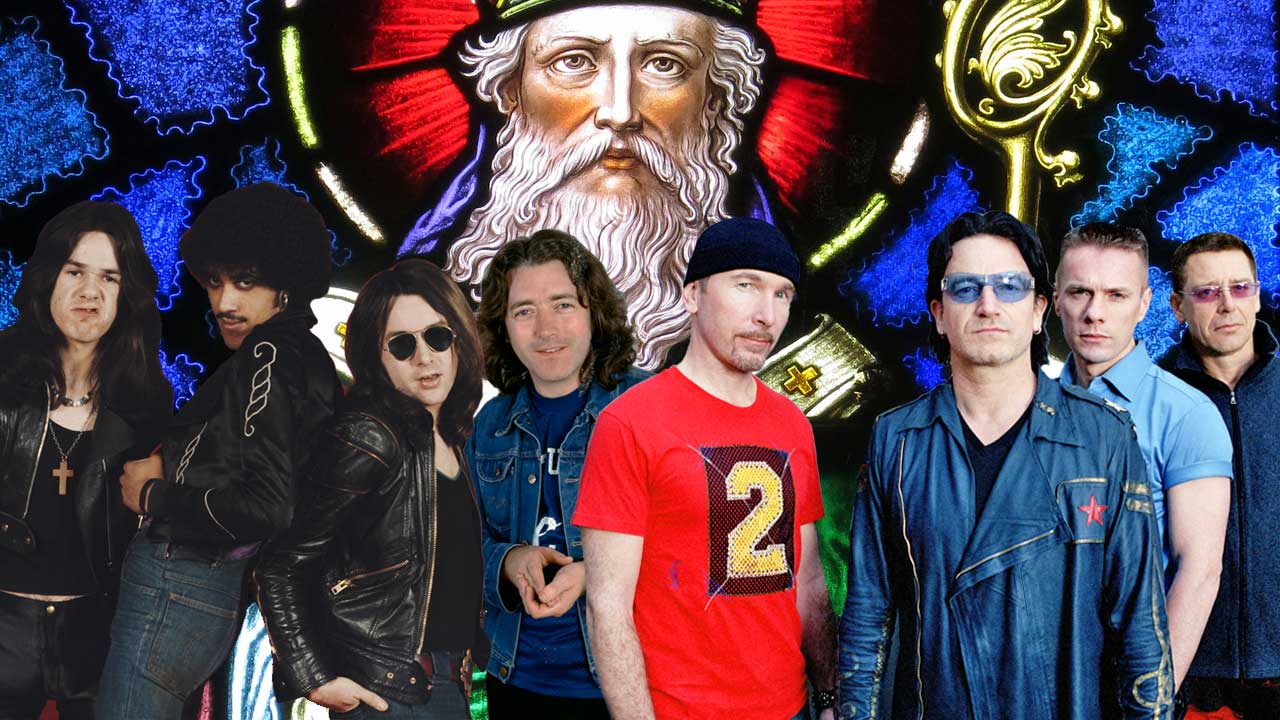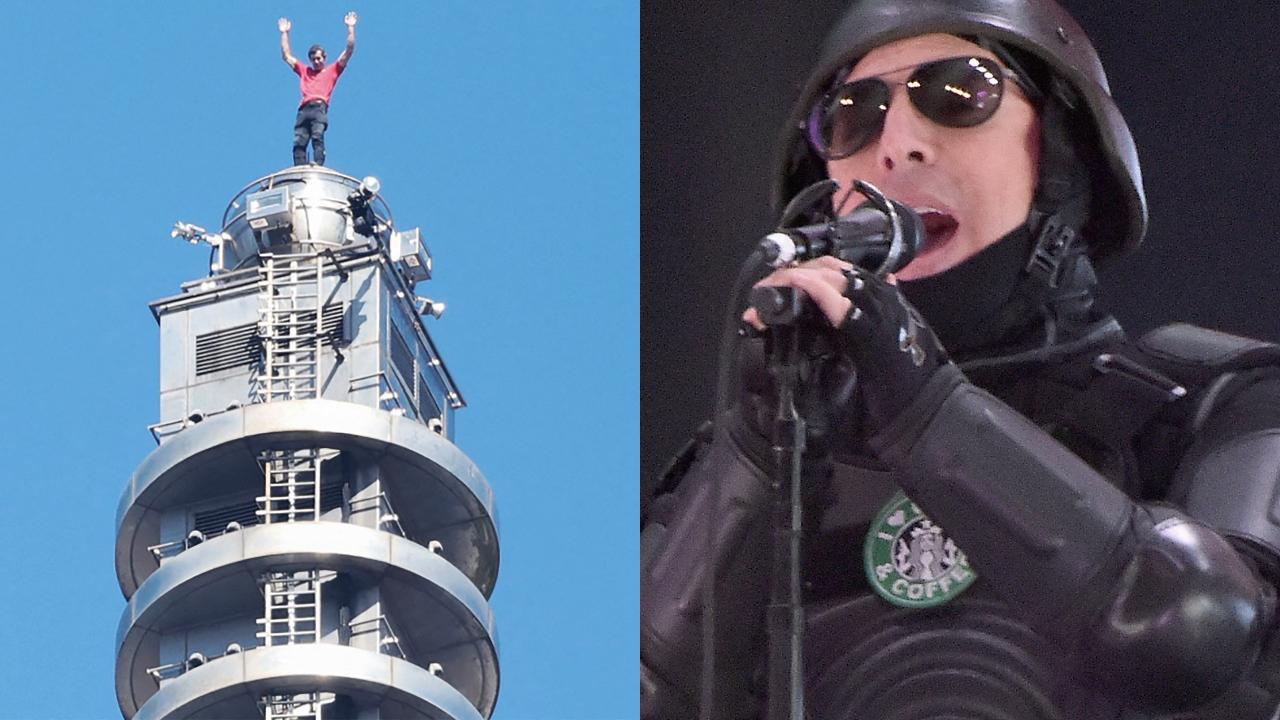10 of the best ever rock bands from Ireland
Ireland has always punched way above its weight when it comes to musical output. Here's 10 of the very best rock acts from the Emerald Isle

One thing you have to say about Irish rock, both north and south of the border, is that it’s never lacked for great characters. From Phil Lynott to Rory Gallagher and Van Morrison, the gaelic brigade can boast some truly special personalities, with the talent to match.
Across the decades, there have been a succession of fine bands whose music has not lonely been successful, but has been instilled with a peculiarity that means they could only have come from the Emerald Isle. The ability to take celtic roots and develop it with an individual flair has made taken each of the 10 bands here enticing and enduring. They have defined Irish rock from the 1960s up to today.

Thin Lizzy
Doesn’t everybody love Thin Lizzy? Is there anyone who doesn’t admire them? The only argument is about their best period. Some might laud Jailbreak or Johnny The Fox as their finest albums, while others will rave about Black Rose. And still more admire Thunder And Lightning. Even Vagabonds Of The Western World has its protagonists.
And Live And Dangerous has long been hailed as an all time classic live album. We all recognise Lynott’s genius as a lyricist, musician, singer and performer. But any band who can boast Brian Downey, one of rock’s most astute drummers, plus a selection of guitarists like Brian Robertson, Gary Moore, John Sykes, Eric Bell and Scott Gorham… it’s no wonder Lizzy’s reputation and influence is so pervasive.
Horslips
Regarded as the fathers of celtic rock, Horslips started properly in 1972, and over the next eight years they released eight albums. Although they had limited success during their initial time together, albums like Dancehall Sweethearts, Drive The Cold Winter Away and The Man Who Built America mixed rock and folk with some inspiring results.
Horslips also used legendary tales from Irish history to create conceptual themes for each record. They have reunited sporadically since the turn of the century, and their stock as genuine progressive pioneers has rightly soared over the past two decades. Genuinely unique.
Rory Gallagher
Whether with Taste or his own band, Rory Gallagher was a fluent, fluid guitar master. Certainly one the elite musicians of the 70s and 80s. He had a blues base, from which he extended his craft to include celtic, folk and other styles And let’s not forget that he had an impressive voice and was a consummate songwriter and band leader.
Sign up below to get the latest from Classic Rock, plus exclusive special offers, direct to your inbox!
Always at his best in a power trio set up, he has inspired such talents as Slash and The Edge. When you listen to what he did on albums such as Deuce, Blueprint, Tattoo and Irish Tour ‘74, it’s not hard to understand why his stature has endured long after his death in 1995.
U2
Yes, we all know that Bono can be a pretentious prig, and in recent times some of U2’s work has been overblown, to say the least. But there can never be any doubt that this an all time great band, who have given us some of the most electrifying music of the past few decades.
Although they initially had much in common with punk, they’ve gone on to explore so many different strands and genres. And, at their best U2 have proven themselves to be remarkably inventive and soaring. Forget about the iTunes controversy and enjoy albums such as Boy, War, The Unforgettable Fire and The Joshua Tree, plus the live Under A Blood Red Sky. This is why U2 are supreme.
Stiff Little Fingers
For six years from 1977, Stiff Little Fingers were the true essence of punk anger. Born from the heart and soul of the Northern Ireland troubles, they were fuelled by a rage that was genuine and inbred, rather than the papier mache gimmickry of so much in punk at the time.
But to this spirit was added a tremendous sense of musicality. It ensured that their early albums, in particular Inflammable Material and Nobody’s Heroes, have more than stood the test of time. And their message is still clear and relevant. The band reunited in 1987, five years after breaking up. But it’s those early days that defined the Fingers legacy.
Them
The band that launched Van Morrison’s career, Them were only around for a short period of time from 1964, but made such an impression that The Doors always cited them as a big influence. The combination of R&B, pop and Irish show band roots gave Them a highly individual sound, with Billy Harrison’s guitar and Peter Barden’s keyboard playing as important as Morrison’s vocals.
Even though they carried on after the frontman quit to go solo in 1966, it was while he was with Them that they made a significant impact. Singles like the immortal Gloria, Here Comes The Night and Mystic Eyes cemented their reputation, while The Angry Young Them album among the best released in the mid-60s.
Skid Row
No, not that one. Today, most people only know this band because it introduced Gary Moore, and then ‘donated’ their name to the infinitely more successful American lot. But they deserve a lot more attention than merely being dismissed in such fashion. The albums Skid and 34 Hours are excellent power trio records, with original vocalist Phil Lynott (yes, him), being dropped from the line-up in their formative stages.
Bassist Brush Shiels took over fronting Skid Row, and did a fine job, in the process influencing the young Lynott. Both Eric Bell and Paul Chapman were also briefly involved with Skid Row, before they split up in 1972.
Therapy?
With more than three decades behind them, Therapy? have never been been afraid to expand their sound and take risks. Starting out as an alt metal trio, the pairing of guitarist/vocalist Andy Cairns and bassist Michael McKeegan has remained constant, as the band have taken on board grunge, gothic and punk instincts over the years.
At their finest, this band have been unshakeably brilliant, as is evidenced on the albums Troublegum, Infernal Love and Suicide Pact – You First. And while their popularity is unquestioned, they have never followed any trend, but been steadfastly uncompromising.
Undertones
Teenage Kicks. That single is enough to ensure this band’s place among the best Ireland has given the world. But there’s so much more to the Derry band that one song. For close on a decade from 1974, The Undertones combined new wave, glam, garage and rock’n’roll in a fashion that led to a whole host of copy bands in the province.
But none had the quality of frontman Feargal Sharkey and the rest of the line-up, which stayed constant throughout this period. Their first two albums, The Undertones and Hypnotised, are full of glorious moments and stunningly constructed songs. Reuniting in 1999, 16 years after splitting up, they’re still touring, albeit without Sharkey. But those early years defined them.
Mama’s Boys
The McManus siblings – Pat, Tommy and John – were a magnificent blues rock band, who lit up the 1980s. Starting in 1978, and inspired in part by Horslips, Mamas Boys were outstanding musicians, in particular Pat on guitar, a true virtuoso. The self-financed 1982 debut album Plug It In established Mama’s Boys reputation, especially the fine single Needle In The Groove.
In 84, a cover of Slade’s Mama Weer All Crazee Now got them some success in America, but it was partially overshadowed by Quiet Riot’s version, released at around the same time! Turn It Up and Power And Passion were also excellent albums. The band split up soon after Tommy died from leukemia in 1994. But they were among the very best bands of the previous decade.
Malcolm Dome had an illustrious and celebrated career which stretched back to working for Record Mirror magazine in the late 70s and Metal Fury in the early 80s before joining Kerrang! at its launch in 1981. His first book, Encyclopedia Metallica, published in 1981, may have been the inspiration for the name of a certain band formed that same year. Dome is also credited with inventing the term "thrash metal" while writing about the Anthrax song Metal Thrashing Mad in 1984. With the launch of Classic Rock magazine in 1998 he became involved with that title, sister magazine Metal Hammer, and was a contributor to Prog magazine since its inception in 2009. He died in 2021.

